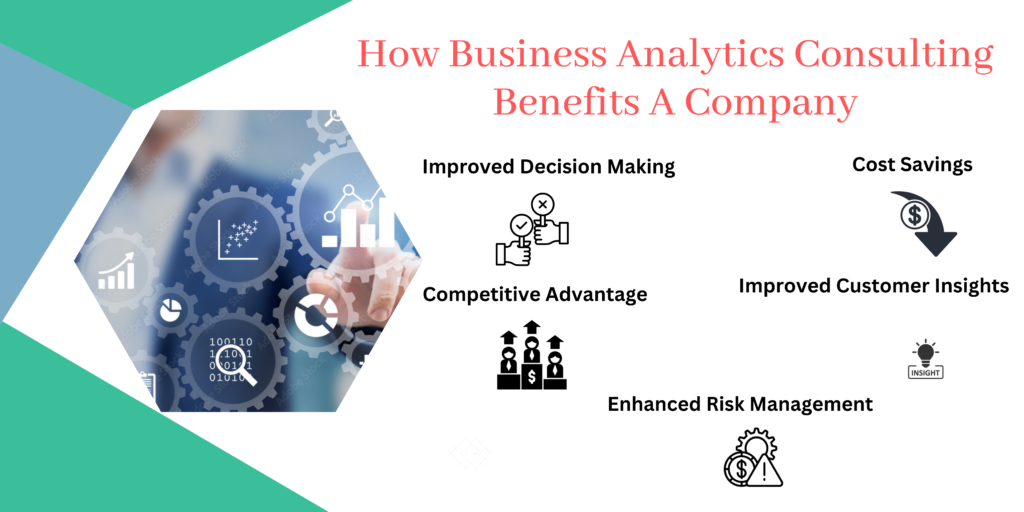Technology has revolutionised the world in every aspect of life, and businesses are no exception. Today’s organisations increasingly rely on technology to achieve their goals, streamline operations, and increase productivity. However, with the ever-evolving world of technology, businesses often face challenges in optimising their IT infrastructure to keep up with the latest trends, advancements, and changes in the industry. This is where IT consulting services come into play.
In today’s fast-paced business world, IT consulting has become a critical element in ensuring the success of any organisation. Companies need to keep up with the latest technology trends, increase efficiency and reduce costs, and they need expert guidance to achieve these goals. IT consulting services provide businesses with the knowledge, expertise, and guidance they need to optimise their IT architecture consulting, make informed decisions, and stay ahead of the competition.
What is IT Consulting?
IT consulting is a service that offers specialised advice and recommendations to businesses to help them optimise their IT infrastructure, align their technology with their business goals, and increase efficiency. IT consulting services are designed to provide businesses with expert guidance on effectively leveraging technology to improve their operations and meet their objectives.
An IT consulting company can be broad or specialized, and the scope of services offered can vary depending on the consultant’s expertise and the organization’s needs. Some common areas that IT consulting companies specialize in include:
-
IT Strategy and Planning
-
IT Architecture and Design
-
Cybersecurity and Risk Management
-
Cloud Computing
-
Infrastructure Optimization
-
Software Development and Integration
IT consulting services can be offered as a one-time engagement or an ongoing partnership. Consultants work closely with the organization’s management and IT teams to understand their objectives, identify their pain points, and develop a comprehensive IT roadmap that aligns with their business goals.
IT consultants are typically experts in their field with years of experience in the industry. As a result, they bring a wealth of knowledge and expertise to the table, which can help businesses make informed decisions and avoid costly mistakes. In addition, IT consultants are often up-to-date on the latest technology trends and advancements and can help organizations stay ahead of the curve.
Starting an IT Consulting Business:
Starting an IT consulting company can be a lucrative and rewarding career path for those with a passion for technology and a desire to help businesses boost their IT infrastructure with business analytics consulting.
Here is a step-by-step guide on how to start an IT consulting business:
Step 1: Determine Your Niche
The first step in starting an IT consulting company is determining your expertise. IT consulting services can be broad or specialized, and the scope of services offered can vary depending on the consultant’s expertise and the organization’s needs. Some common areas that IT consulting firms specialize in include IT Strategy and Planning, IT Architecture Consulting and Design, Cybersecurity and Risk Management, Cloud Computing, Infrastructure Optimization, and Software Development and Integration.
Identifying your niche based on your skills, experience, and interest is essential. Specializing in a particular area can help you stand out and position yourself as an expert.
Step 2: Develop Your Business Plan
Once you have identified your niche, it’s time to develop your business plan. Your business plan should outline your goals, target market, pricing strategy, marketing plan, and financial projections. A well-written business plan can help you secure funding, attract clients, and focus on your goals.
Step 3: Establish Your Legal Structure
The next step is to establish your legal structure. For example, you can show your business as a sole proprietorship, partnership, or LLC. Each legal structure has advantages and disadvantages, so it’s essential to research and choose the one that best suits your needs.
Step 4: Register Your Business
Once you have established your legal structure, you must register your business with the appropriate authorities. It includes registering your business name, obtaining any necessary permits or licenses, and registering for taxes. The requirements may vary depending on your location, so it’s essential to research and comply with all the necessary regulations.
Step 5: Set up Your Office and Equipment
Now it’s time to set up your office and equipment. Depending on the scope of business analytics consulting services you plan to offer, you may need specialized equipment, such as servers, networking equipment, and software. You’ll also need a dedicated workspace and the necessary office equipment, such as a computer, phone, and internet connection.
Step 6: Build Your Network
Building a network is critical for the success of your IT consulting business. Attend industry events, connect with other professionals in your field, and join relevant online forums and groups. Networking can help you build relationships with potential clients, learn about new opportunities, and stay up-to-date with industry trends.
Step 7: Market Your Services
Marketing is essential for getting your IT consulting company off the ground. Develop a marketing plan that includes social media, email marketing, content marketing, and paid advertising. In addition, consider offering free consultations or workshops to attract potential clients and showcase your expertise.
Step 8: Deliver Exceptional Service
Delivering exceptional service is crucial for building a successful IT consulting business. Focus on understanding your client’s needs and providing tailored solutions that meet their goals. Communicate, set expectations, and be responsive to their needs. Providing exceptional service can lead to repeat business, referrals, and positive reviews.
Step 9: Scale Your Business
As your IT consulting business grows, you may need additional staff or subcontractors to meet the demand. You may also need to expand your service offerings or explore new markets. Staying focused on your goals and continuing to provide exceptional service as you scale your business is essential.
How Business Analytics Consulting Benefits A Company:

Businesses can benefit significantly from business analytics consulting services in today’s data-driven world. Business analytics consulting involves data analysis, statistical modelling, and other techniques to help companies make better-informed decisions. Here are some of the ways that business analytics consulting can benefit a company:
-
Improved Decision Making
One of the most significant benefits of business analytics consulting is improved decision-making. Analytics consulting provides businesses with data-driven insights and recommendations to help them make informed decisions. By analysing data from various sources, companies can identify trends, patterns, and correlations that may not be immediately apparent, leading to better decision-making and increased profitability.
-
Cost Savings
Business analytics consulting services can help businesses identify cost-saving opportunities by analyzing their operations and identifying areas where they can cut costs without sacrificing quality. By identifying inefficiencies and waste, companies can optimize their processes, streamline operations, and reduce costs.
-
Competitive Advantage
Business analytics consulting can provide businesses with a competitive advantage by helping them identify opportunities for growth and innovation. By analyzing market trends, consumer behavior, and competitor activity, companies can develop strategies to stay ahead of the competition and differentiate themselves in the marketplace.
-
Improved Customer Insights
Business analytics consulting can help businesses better understand their customers and their needs. By analyzing customer data, companies can identify patterns and preferences that can help them tailor their products and services to meet the needs of their target audience. As a result, it can lead to increased customer satisfaction, loyalty, and repeat business.
-
Enhanced Risk Management
Business analytics consulting can help businesses identify potential risks and develop mitigation strategies. By analyzing data and identifying potential risks, companies can develop contingency plans and implement risk management strategies to minimize the impact of unforeseen events.
Niches To Consider
As an IT consulting company, choosing a niche can help you establish yourself as an expert in a particular area and differentiate yourself from competitors. Here are some niches to consider:
1. Cybersecurity Consulting:
With the increasing threat of cyber attacks, cybersecurity consulting is becoming an essential service for businesses. Cybersecurity consulting involves assessing a company’s security vulnerabilities and developing strategies to prevent and mitigate cyber-attacks.
2. Cloud Computing Consulting:
The Cloud computing is becoming increasingly popular among businesses looking to streamline operations and reduce costs. Cloud computing consulting involves helping businesses migrate their data and applications to cloud-based platforms and advising them on the best practices for managing their cloud environment.
3. Data Analytics Consulting:
With the vast amounts of data businesses generate, data analytics consulting is becoming a critical service for businesses looking to make informed decisions. Data analytics consulting involves analyzing a company’s data to identify patterns, trends, and insights that can inform business strategies.
4. Digital Transformation Consulting:
Digital transformation consulting involves helping businesses transition to digital technologies to improve their operations and customer experiences. It includes everything from developing digital strategies and roadmaps to implementing new technologies and training employees on new systems.
Read Also: How to Start an IT Consulting Business – Small Business Trends
Conclusion:
IT consulting services have become an essential element for businesses looking to enhance their IT infrastructure, align their technology with their business goals, and increase efficiency. Starting an IT consulting company can be a lucrative and rewarding career path for those with a passion for technology and a desire to help businesses succeed.
Starting an IT consulting business requires careful planning, research, and execution. Following the steps outlined in this guide, you can set yourself up for success and build a thriving IT consulting business that helps businesses achieve their goals. Remember to stay focused on your niche, deliver exceptional service, and continue to learn and grow as the industry evolves.





